
IROS 2020 Distinguished Keynote Speakers
(last updated 09/30/20: Latest General FAQs (URL) here)
 Registration for IROS 2020 On-Demand is free.
Registration for IROS 2020 On-Demand is free.
For those who already registered on Cvent, you have already been automatically signed-up for On-Demand; you have nothing else to do. All others must sign-up:
Visit IROS On-Demand Sign-Up to register for free access
 |
Topical Area: Air, Sea, and Space Robots Keynote Speaker: Prof. Frank Dellaert Bio: Frank Dellaert is a Professor in the School of Interactive Computing at the Georgia Institute of Technology and a Research Scientist at Google AI. While on leave from Georgia Tech in 2016-2018, he served as Technical Project Lead at Facebook's Building 8 hardware division. Before that he was also Chief Scientist at Skydio, a startup founded by MIT grads to create intuitive interfaces for micro-aerial vehicles. His research is in the overlap between robotics and computer vision, and he is particularly interested in graphical model techniques to solve large-scale problems in mapping, 3D reconstruction, and increasingly model-predictive control. The GTSAM toolbox embodies many of the ideas his research group has worked on in the past few years and is available at https://gtsam.org. |
|---|---|
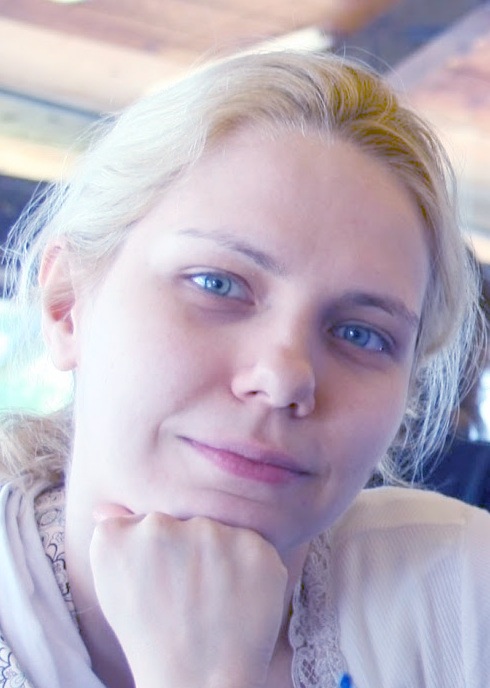 |
Topical Area: Driverless Vehicles and Field Robots Keynote Speaker: Dr. Anya Petrovskaya Bio: Dr. Anna Petrovskaya is a scientist and entrepreneur with decades of experience in the field of AI, autonomy, and 3D computer vision. Most recently, Anna built a 3D mapping startup that was acquired by Mobileye/Intel, where she became Head of LiDAR AI. She completed her Doctorate degree in Computer Science at Stanford University in 2011, where she focused on Artificial Intelligence and Robotics. In 2012, her thesis was named among the winners of the IEEE Intelligent Transportation Systems Society Best PhD Thesis Award. Anna was part of the core team that built the Stanford autonomous car Junior, which was a precursor to the Waymo/Google autonomous car. She has served as an Associate Editor for International Conference on Robotics and Automation (ICRA) since 2011. Based on her expertise, Anna has been invited to co-author chapters for the Handbook of Intelligent Vehicles and the 2nd edition of the Handbook of Robotics |
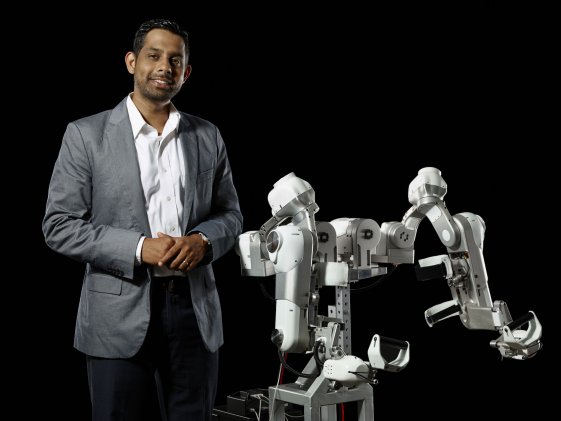 |
Topical Area: Rehabilitation Robotics Keynote Speaker: Prof. Ashish Deshpande Bio: Ashish D. Deshpande is passionate about helping stroke patients recover from their disabilities and he believes robots could serve as important tools in the recovery process. He is a faculty member in Mechanical Engineering at The University of Texas at Austin, where he directs the ReNeu Robotics Lab. His work focuses on the study of human system and design of robotic systems toward the goals accelerating recovery after a neurological injury (e.g. stroke and spinal cord injury), improving the quality of lives of those living disabilities (e.g. amputation) and enhancing lives and productivity of workers, soldiers and astronauts. Specifically, his group has designed two novel exoskeletons for delivering engaging and subject-specific training for neuro-recovery of upper-body movements after stroke and spinal cord injury. Dr. Deshpande is a co-founder of Harmonic Bionics whose mission is to improve rehabilitation outcomes for the stroke patients. |
 |
Topical Area: Humanoids Keynote Speaker: Prof. Jonathan Hurst Bio: Jonathan W. Hurst is Chief Technology Officer and co-founder of Agility Robotics, and Professor and co-founder of the Oregon State University Robotics Institute. He holds a B.S. in mechanical engineering and an M.S. and Ph.D. in robotics, all from Carnegie Mellon University. His university research focuses on understanding the fundamental science and engineering best practices for robotic legged locomotion and physical interaction. Agility Robotics is bringing this new robotic mobility to market, solving problems for customers, working towards a day when robots can go where people go, generate greater productivity across the economy, and improve quality of life for all. |
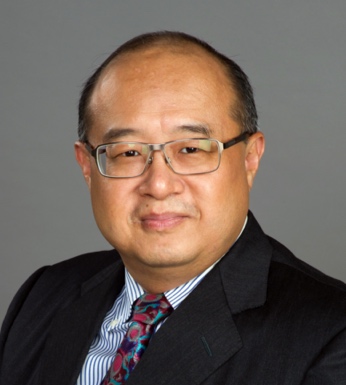 |
Topical Area: Food Handling Robotics Keynote Speaker: Prof. I-Ming Chen Bio: I-Ming Chen received the B.S. degree from National Taiwan University in 1986, and M.S. and Ph.D. degrees from California Institute of Technology, Pasadena, CA in 1989 and 1994 respectively. He is currently Professor in the School of Mechanical and Aerospace Engineering of Nanyang Technological University (NTU) in Singapore, and Editor-in-chief of IEEE/ASME Transactions on Mechatronics. He is Director of Robotics Research Centre in NTU from 2013 to 2017, and is also a member of the Robotics Task Force 2014 under the National Research Foundation which is responsible for Singapore’s strategic R&D plan in future robotics. Professor Chen is Fellow of Singapore Academy of Engineering, Fellow of IEEE and Fellow of ASME, General Chairman of 2017 IEEE International Conference on Robotics and Automation (ICRA 2017) in Singapore. His research interests are in logistics and construction robots, wearable devices, human-robot interaction and industrial automation. He is also CEO of Transforma Robotics Pte Ltd developing robots for construction industry and CTO of Hand Plus Robotics Pte Ltd developing robotics and AI solutions for logistics and manufacturing industry. |
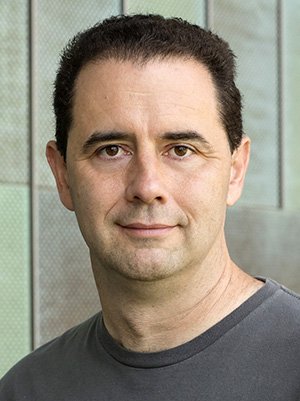 |
Topical Area: Perception, Action and Control Keynote Speaker: Prof. Steve LaValle Bio: Steve LaValle is Professor of Computer Science and Engineering, in Particular Robotics and Virtual Reality, at the University of Oulu. From 2001 to 2018, he was a professor in the Department of Computer Science at the University of Illinois. He has also held positions at Stanford University and Iowa State University. His research interests include robotics, virtual and augmented reality, sensing, planning algorithms, computational geometry, and control theory. In research, he is mostly known for his introduction of the Rapidly exploring Random Tree (RRT) algorithm, which is widely used in robotics and other engineering fields. In industry, he was an early founder and chief scientist of Oculus VR, acquired by Facebook in 2014, where he developed patented tracking technology for consumer virtual reality and led a team of perceptual psychologists to provide principled approaches to virtual reality system calibration, health and safety, and the design of comfortable user experiences. From 2016 to 2017 he was Vice President and Chief Scientist of VR/AR/MR at Huawei Technologies, Ltd. He has authored the books Planning Algorithms, Sensing and Filtering, and Virtual Reality. |
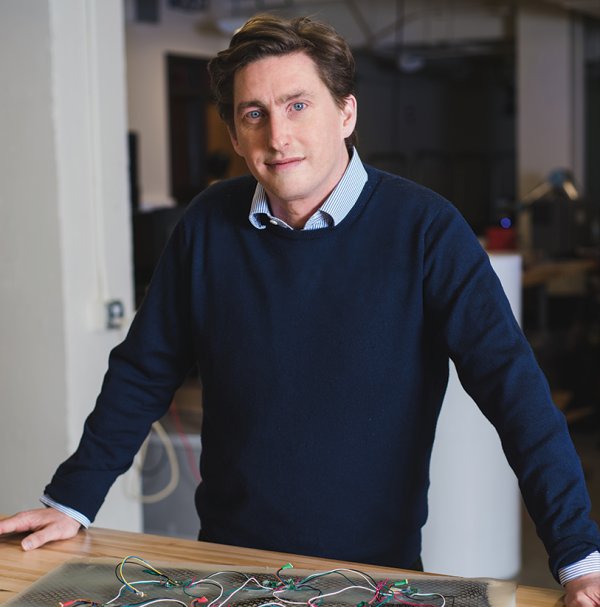 |
Topical Area: Grasping, Haptics and End-effectors Keynote Speaker: Prof. Nikolaus Correll Bio: Bio: Nikolaus Correll is an Associate Professor at the University of Colorado at Boulder. He obtained his MS in Electrical Engineering from ETH Zürich and his PhD in Computer Science from EPF Lausanne in 2007. From 2007-2009 he was a post-doc at MIT's Computer Science and Artificial Intelligence Lab (CSAIL). Nikolaus is the recipient of a NSF CAREER award, a NASA Early Career Faculty Fellowship and a Provost Faculty achievement award. In 2016, he founded Robotic Materials Inc. to commercialize robotic manipulation technology. |
 |
Topical Area: Human-Robot Interaction Keynote Speaker: Prof. Andrea Thomaz Bio: Andrea Thomaz is the CEO and Co-Founder of Diligent Robotics and a renowned social robotics expert. Her accolades include being recognized by the National Academy of Science as a Kavli Fellow, the US President’s Council of Advisors on Science and Tech, MIT Technology Review on its Next Generation of 35 Innovators Under 35 list, Popular Science on its Brilliant 10 list, TEDx as a featured keynote speaker on social robotics and Texas Monthly on its Most Powerful Texans of 2018 list. Andrea’s robots have been featured in the New York Times and on the covers of MIT Technology Review and Popular Science. Her passion for social robotics began during her work at the MIT Media Lab, where she focused on using AI to develop machines that address everyday human needs. Andrea co-founded Diligent Robotics to pursue her vision of creating socially intelligent robot assistants that collaborate with humans by doing their chores so humans can have more time for the work they care most about. She earned her Ph.D. from MIT and B.S. in Electrical and Computer Engineering from UT Austin, and was a Robotics Professor at UT Austin and Georgia Tech (where she directed the Socially Intelligent Machines Lab). Andrea is published in the areas of Artificial Intelligence, Robotics, and Human-Robot Interaction. Her research aims to computationally model mechanisms of human social learning in order to build social robots and other machines that are intuitive for everyday people to teach. Andrea has received an NSF CAREER award in 2010 and an Office of Naval Research Young Investigator Award in 2008. In addition Diligent Robotics robot Moxi has been featured on NBC Nightly News and most recently in National Geographic “The robot revolution has arrived”. |
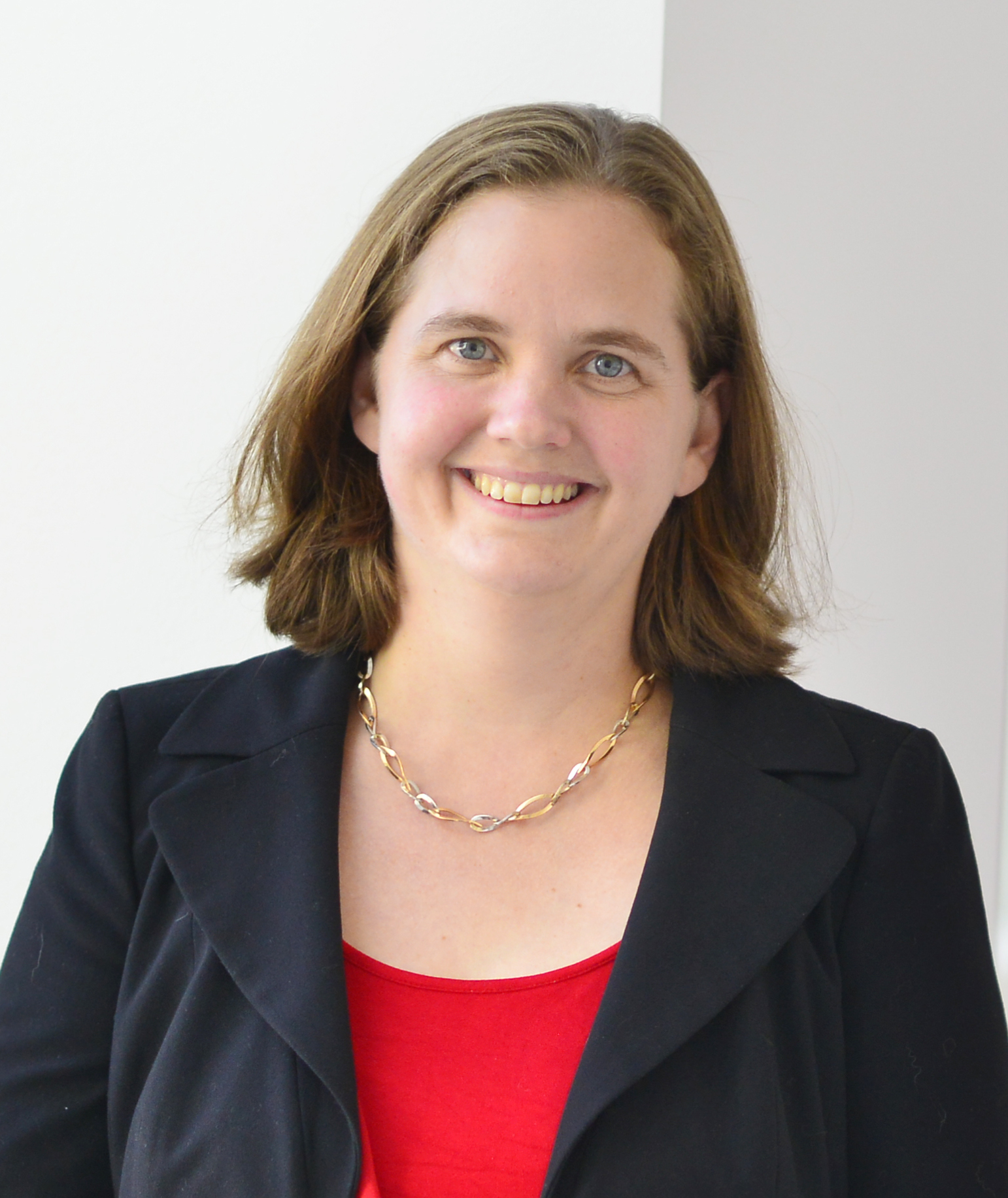 |
Topical Area: Design, Micro and Bio-inspired Robotics Keynote Speaker: Prof. Sarah Bergbreiter Bio: Sarah Bergbreiter joined the Department of Mechanical Engineering at Carnegie Mellon University in the fall of 2018 after spending ten years at the University of Maryland, College Park. She received her B.S.E. degree in electrical engineering from Princeton University in 1999. After a short introduction to the challenges of sensor networks at a small startup company, she received the M.S. and Ph.D. degrees from the University of California, Berkeley in 2004 and 2007 with a focus on microrobotics. Prof. Bergbreiter received the DARPA Young Faculty Award in 2008, the NSF CAREER Award in 2011, and the Presidential Early Career Award for Scientists and Engineers (PECASE) Award in 2013 for her research bridging microsystems and robotics. She has received several Best Paper awards at conferences like ICRA, IROS, and Hilton Head Workshop. She currently serves as vice-chair of DARPA’s Microsystems Exploratory Council and as an associate editor for IEEE Transactions on Robotics. |